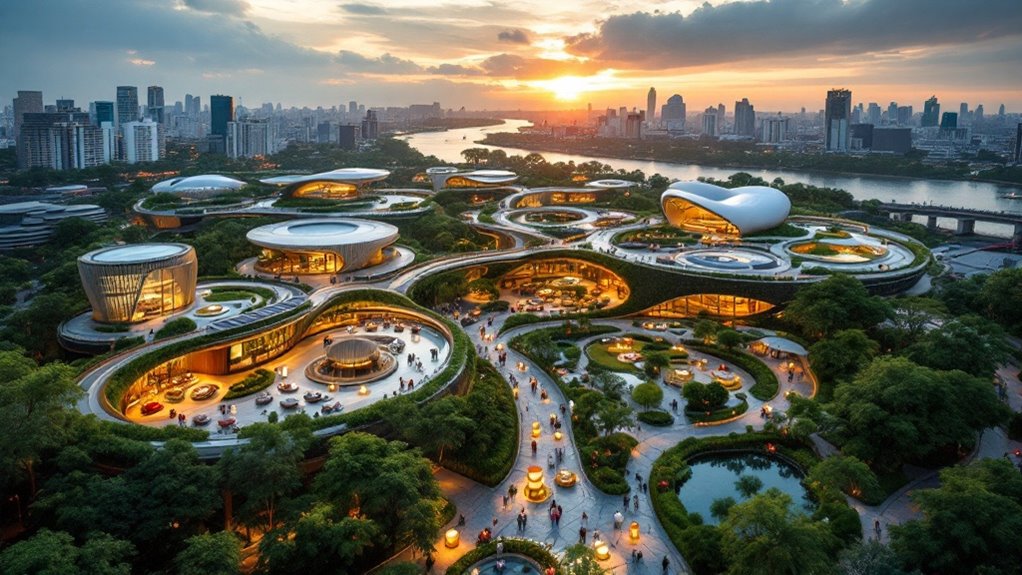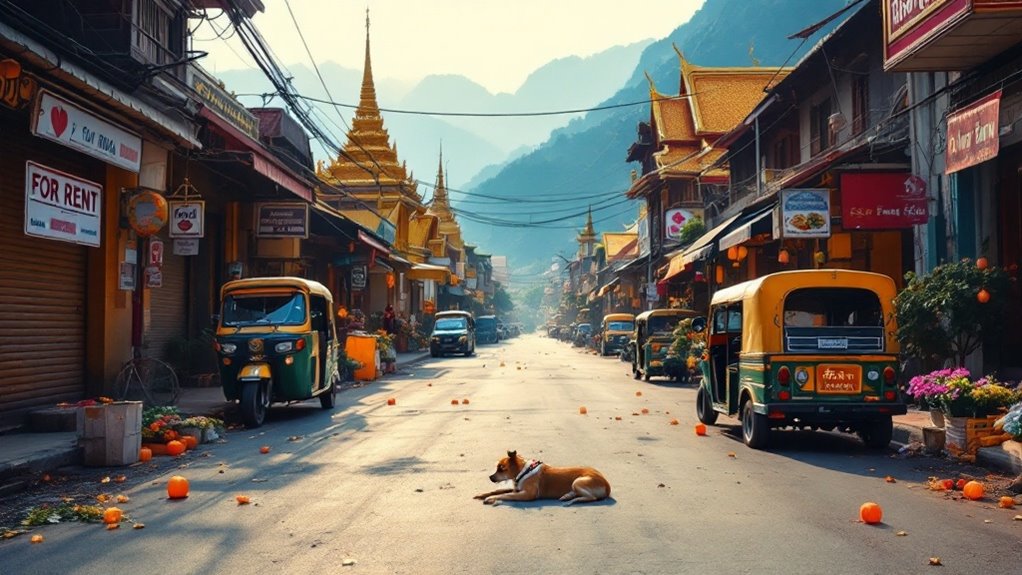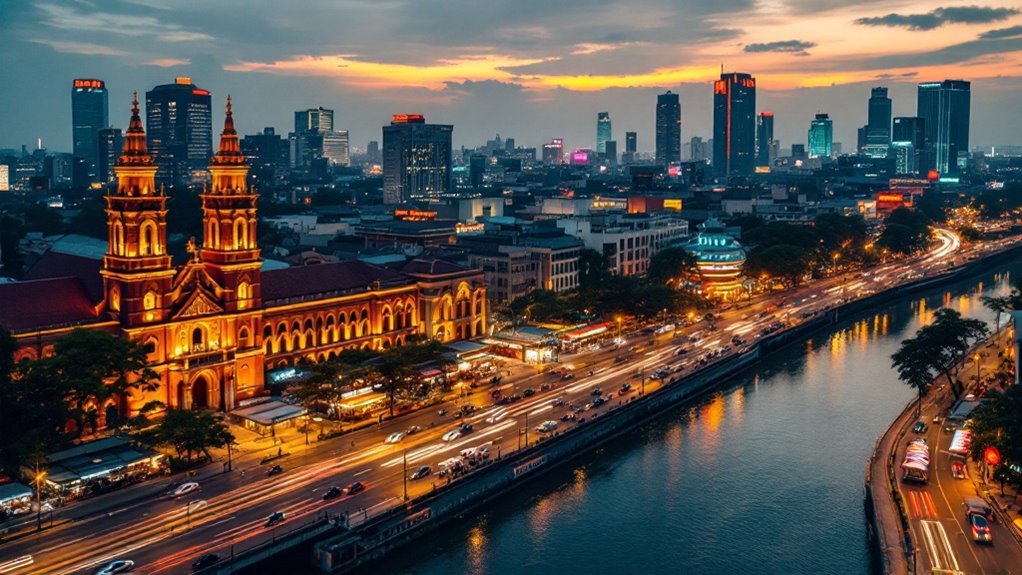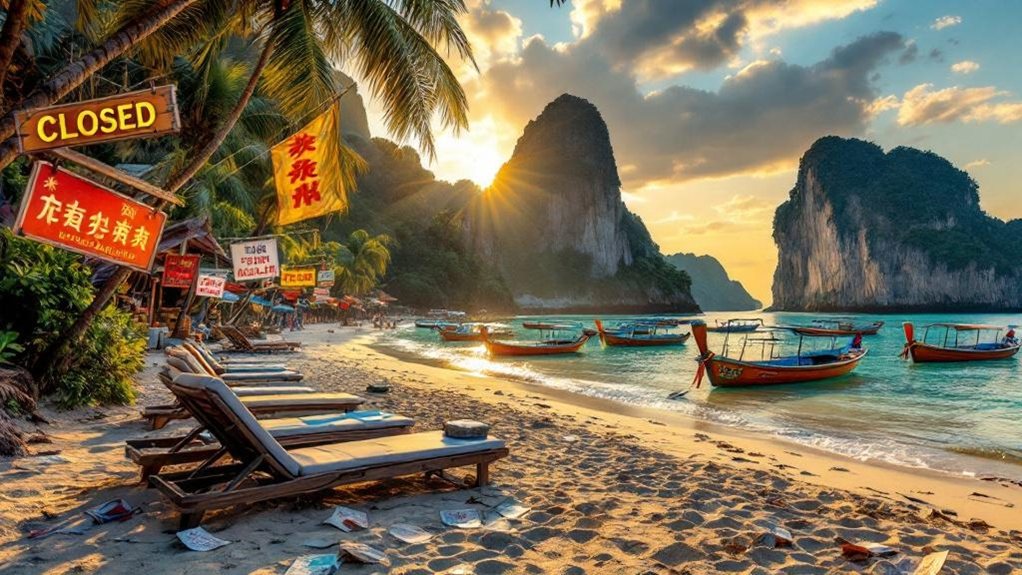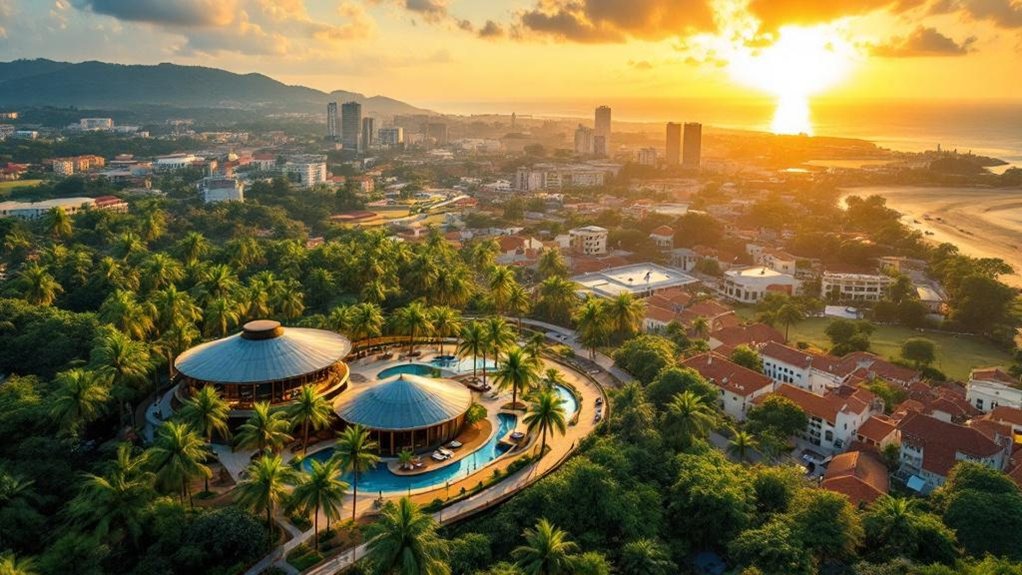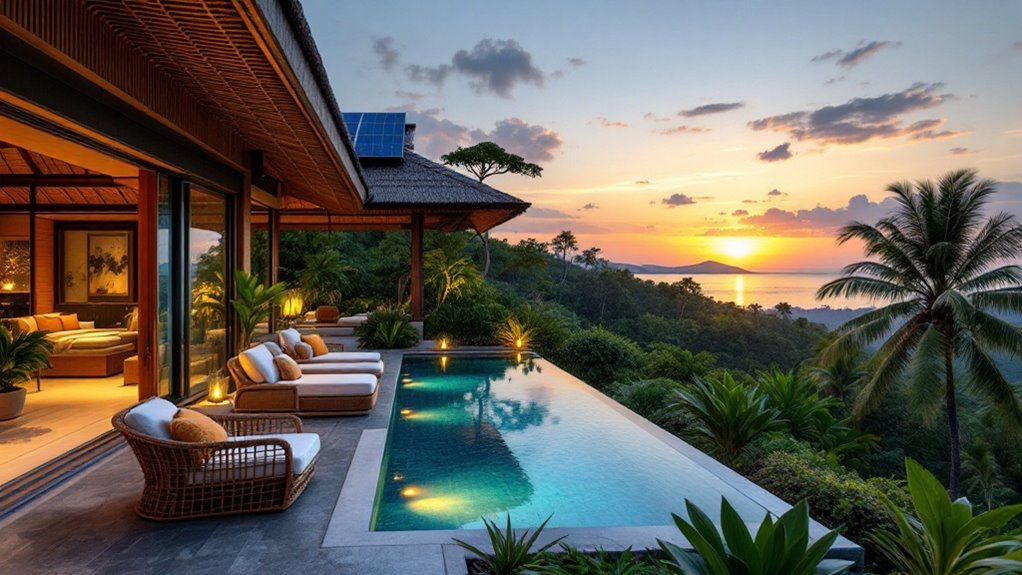Bangkok Expo 2025 challenges residents to reconsider urban life by showcasing sustainable design, innovative urban revitalization, and international cultural exchange. The event, centered in Bangkok, features projects like adaptive alleyway play spaces, eco-friendly street vendor solutions, and large-scale exhibitions covering 75,000 square meters with over 3,000 exhibitors. Drawing hundreds of thousands of visitors and supported by local and global agencies, the Expo aims to position Bangkok as a leader in urban transformation, with further details highlighting its broader impact and scope.
How does a modern metropolis reshape its urban landscape while embracing tradition and innovation? Bangkok Expo 2025 presents an answer by positioning itself as a platform for cultural exchange, sustainability, and transformative design. Events such as Bangkok Design Week 2025 underscore the city’s commitment to creative expression and urban development, drawing international participants and fostering dialogue between tradition and modernity.
The event’s focus on sustainable urban solutions is evident in projects that enhance the quality of life, such as collaborative initiatives to convert urban spaces into more livable environments. The festival attracted over 618,411 visitors, reflecting the growing popularity of design and creativity in Bangkok. Thailand’s participation in Expo 2025 Osaka, Kansai, Japan highlights its international aspirations and positions Bangkok as a leader in regional innovation and urban advancement.
Architect’25 Expo, touted as ASEAN’s largest architectural exposition, facilitates the evolution of Thai architecture and serves as a showcase for global building technologies. With over 3,000 exhibitors and six thematic pavilions, it covers 75,000 square meters at Challenger Hall and expects approximately 325,000 visitors. These numbers highlight its significance within the industry and its role as a catalyst for economic activity.
The expo’s impact is further reflected in the local economy, with Bangkok Design Week alone contributing over 195 billion baht, supporting businesses, and enhancing Bangkok’s status as a design hub.
Urban space revitalization is a key theme, illustrated by projects like the Playground Initiative, which transforms alleyways into activity spaces that foster community engagement. Other examples include the MinutePocket UrbanBed, which opens private areas for public rest, and Songthaew Evolve, a design solution for shared taxis maneuvering narrow urban corridors.
Eco-friendly projects and community-driven public spaces aim to reduce environmental impact and promote social interaction.
Sustainable design is further advanced through innovations such as the Street Vendor Grease Trap, Mega Mat seating crafted from recycled plastic, and Waste to Music, where discarded materials are repurposed into instruments. These initiatives are supported by the Thailand Creative Culture Agency and align with Bangkok’s inclusion in the UNESCO Creative City Network.
Collectively, these efforts demonstrate how design acts as a catalyst for urban transformation, economic growth, and cultural development, encouraging residents and visitors to reconsider the possibilities of city living.
